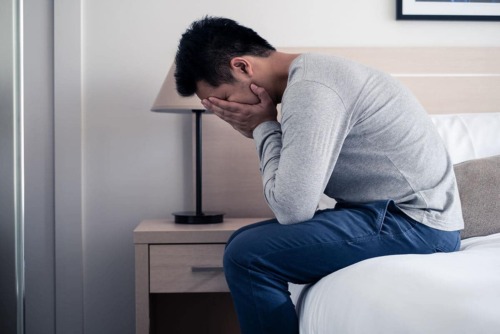You can treat opioid addiction with suboxone. Treatment involves combining a long-acting opioid, buprenorphine and naloxone, which is an opioid antagonist. Still, Suboxone contains an opioid. This means it still has the potential for patients to misuse it. When you want to stop, Suboxone withdrawal is a real physical phenomenon, and you should have an experienced treatment team to help you through the process.
Kemah Palms offers premier detox in Houston, Texas
Chronic Pain and Suboxone Withdrawal
At the heart of opioid addiction is the chronic pain that resulted in an opioid prescription. An effective treatment program should also address chronic pain and how to alleviate it, thereby, avoiding any need for more pain killers. If you have been using Suboxone as part of opioid addiction treatment, you may experience Suboxone withdrawal symptoms. This means you have become physically dependent on that drug. Your brain relies on the drug to maintain a stable chemical balance.
Suboxone Withdrawal Symptoms
Going through withdrawal can be difficult physically and emotionally. You may experience chills, insomnia, excessive sweating, stomach cramps, nausea, muscle aches, irregular heartbeat, and a decreased appetite. Other side effects of Suboxone withdrawal include anxiety, depression, difficulty focusing, agitation, yawning, cloudy thoughts, and drug cravings. In general, most addiction treatment professionals will not recommend going “cold turkey” from Suboxone. This is due to the potential for severe withdrawal symptoms.
Often, doctors wean patients from the drug slowly to manage the withdrawal process and medical detox treatment. However, this should not stop you from seeking out Suboxone addiction treatment. Instead, this should encourage you to enroll in a program in which caring, compassionate professionals who know the timelines involved in withdrawal. Also, you want to enroll in a program that addresses the underlying chronic pain that necessitated pain killers in the first place. You want a program that helps you find comprehensive relief.
Withdrawal Timeline
Suboxone contains buprenorphine, which is a long-acting opioid. It stays in your bloodstream longer than other opioids. Its half-life is approximately 24 to 60 hours. Withdrawal symptoms will occur approximately one to three days after your last dose. A typical Suboxone withdrawal symptom timeline looks like this:
- One to three days after the final dose: emotional and physical symptoms begin
- Three to five days after the final dose: withdrawal symptoms typically peak
- One to two weeks after the final dose: physical withdrawal symptoms have eased significantly, and emotional symptoms have eased some
- A few weeks to several months after the final dose: anxiety, depression, insomnia, clouded thinking, and cravings can linger
Tapering Suboxone Will Lessen Withdrawal Symptoms
Decreasing the dose in a managed setting can help minimize withdrawal symptoms by allowing low doses in your body. In general, tapering off will lower the dose by a tolerable percentage daily until you are off completely. Your treatment professional can explore those options with you. The stabilization dosage will depend upon your specific circumstances. An addiction treatment professional will set a schedule that is safe while still providing you with optimal treatment.
Several factors play into determining the schedule like your biological makeup, any co-occurring medical issues, level of drug dependency, level of home support you have and any mental health issues. Medical detox treatment can offer a comfortable environment, the right levels of support and care as well as management of withdrawal symptoms. Suboxone withdrawal will be different for each person, and you should have a program tailored to meet your individual needs. This means integrating treatment for the underlying chronic pain that brought you to this point.
Kemah Palms Recovery® has a chronic pain recovery program that offers the following services:
- Houston Medical detox program
- Partial hospitalization program
- Residential addiction treatment program
- Intensive outpatient program
- Aftercare program
Kemah Palms Recovery® wants to be alongside you as you take the first step toward recovery. Contact us today today and let us help you in this process.






